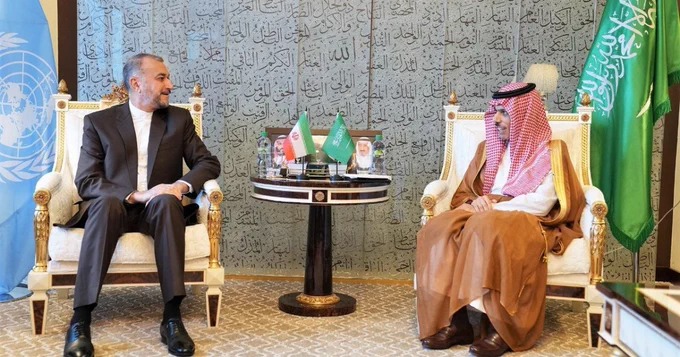In the wake of an unprecedented detente between Iran and Saudi Arabia, Tehran has set its sights on mending ties with numerous countries, marking a significant shift in regional diplomacy. The groundbreaking agreement between these regional powers has unleashed a wave of diplomatic transformations that extend far beyond their borders. With the normalization of relations underway, the international community is left to ponder which nations have recently reconciled with Iran, the latest developments in the Iran-Saudi Arabia relationship, and the prospects of further diplomatic breakthroughs on the horizon.
The Ripple Effect of Iran-Saudi Arabia Rapprochement
The rift between Iran and Saudi Arabia, which led to the severance of diplomatic relations, also influenced several other nations, causing them to distance themselves from Tehran. Among them were Djibouti, Sudan, and the Maldives, which had thrown their support behind Riyadh during the tense period of estrangement. However, with the recent Tehran-Riyadh detente, a ray of hope emerged for improved relations across the region.
Notably, Iran’s Foreign Minister, Hossein Amir-Abdollahian, engaged in diplomacy on the sidelines of the United Nations General Assembly (UNGA) in New York, meeting with Jasem Mohamed Albudaiwi, the Secretary-General of the Gulf Cooperation Council (GCC). This diplomatic breakthrough also paved the way for discussions between the Iran-aligned Houthi movement in Yemen and Saudi Arabia, facilitating Syria’s re-admittance to the Arab League.
Egypt, with a historically rocky relationship with Iran since the Islamic revolution in 1979, remains a complex case. The asylum granted to Shah Mohammad Reza Pahlavi and Egypt’s recognition of Israel have contributed to strained ties. Morocco, in 2018, severed diplomatic ties with Tehran over alleged support for the Western Saharan independence movement.
The Growing Tehran-Riyadh Relations
The turning point in Iran’s diplomatic resurgence occurred during the sidelines of the UNGA in New York, where Iranian officials initiated dialogues with regional and international counterparts. This outreach bore fruit as Iran re-established relations with Djibouti and the Maldives, formally announcing the resumption of diplomatic ties.
These developments followed the groundbreaking agreement between Iran and Saudi Arabia to restore formal diplomatic relations, brokered by China in March. The Saudi-Iran diplomatic ties had been severed in 2016, following the storming of Saudi diplomatic missions in Iran in response to the execution of a prominent Shia religious leader.
Prospects for Expanded Diplomacy in the Middle East
Iran and Saudi Arabia, who restarted direct talks with Iraqi mediation in 2021, have praised the progress of their rapprochement. Both nations exchanged ambassadors and extended invitations for high-level visits. Iran’s President, Ebrahim Raisi, accepted an invitation to visit Riyadh, a significant step towards enhancing bilateral relations.
Additionally, discussions between Iran and Egypt, facilitated by Iraq and Oman, hold promise for a diplomatic breakthrough. While less publicized than talks with Riyadh, these negotiations have been ongoing for about two years. Iran’s President Raisi expressed optimism that a new chapter in bilateral relations could emerge.
Jordan and Iran have engaged in talks, albeit in their nascent stages, while Sudan and Morocco are also potential candidates for re-established formal relations, according to Amir-Abdollahian, Iran’s Foreign Minister.
In a world marked by shifting alliances and diplomatic realignments, Iran’s pursuit of normalized relations with various nations highlights the evolving dynamics in the Middle East. The landmark agreement with Saudi Arabia has set the stage for an era of diplomatic reconciliation, where previously strained ties are being mended, and new alliances are taking shape.















